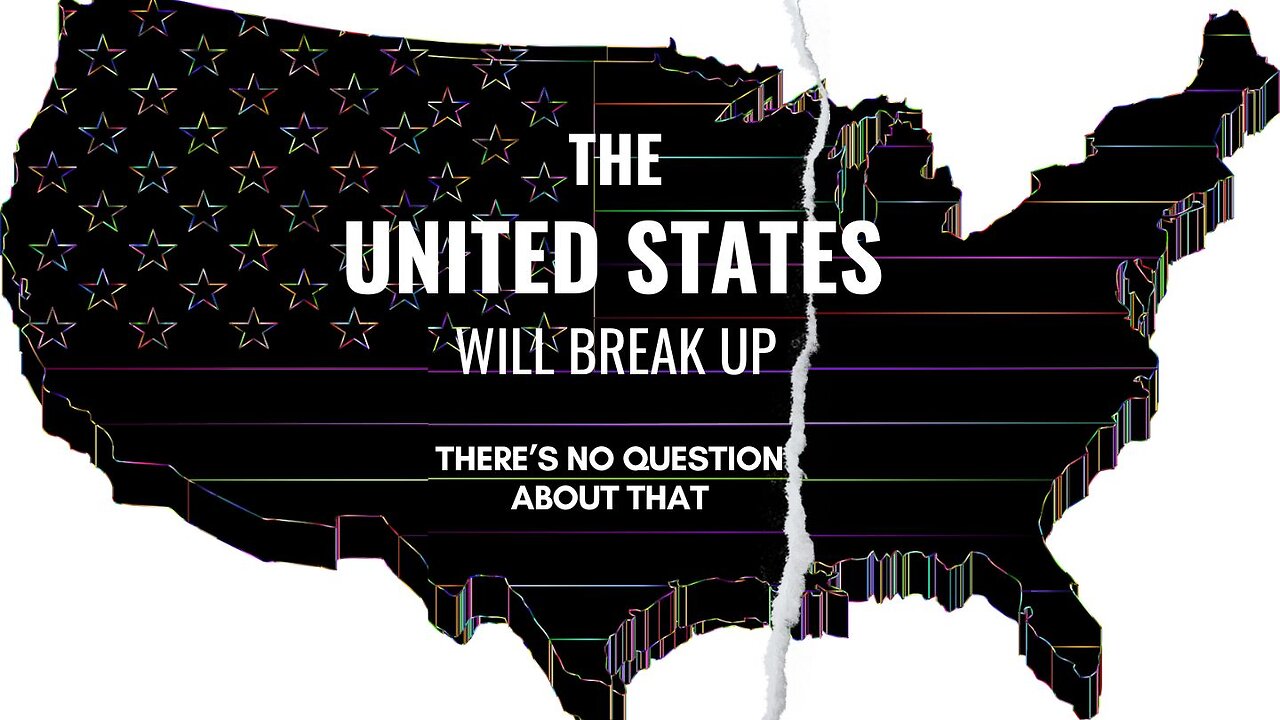Premium Only Content

The United States Will Break Up • There's No Question About That • Martin Armstrong
Political scientist Barbara F. Walter suggests that most contemporary civil wars are actually repeats of earlier civil wars that often arise when leaders are not accountable to the public, when there is poor public participation in politics, and when there is a lack of transparency of information between the executives and the public.
A civil war is a war between organized groups within the same state (or country). The aim of one side may be to take control of the country or a region, to achieve independence for a region, or to change government policies. The term is a calque of Latin 'bellum civile' which was used to refer to the various civil wars of the Roman Republic in the 1st century BC.
Most modern civil wars involve intervention by outside powers. According to Patrick M. Regan in his book Civil Wars and Foreign Powers about two thirds of the 138 intrastate conflicts between the end of World War II and 2000 saw international intervention.
A civil war is often a high-intensity conflict, often involving regular armed forces, that is sustained, organized and large-scale. Civil wars may result in large numbers of casualties and the consumption of significant resources.
Civil wars since the end of World War II have lasted on average just over four years, a dramatic rise from the one-and-a-half-year average of the 1900–1944 period. While the rate of emergence of new civil wars has been relatively steady since the mid-19th century, the increasing length of those wars has resulted in increasing numbers of wars ongoing at any one time. For example, there were no more than five civil wars underway simultaneously in the first half of the 20th century while there were over 20 concurrent civil wars close to the end of the Cold War. Since 1945, civil wars have resulted in the deaths of over 25 million people, as well as the forced displacement of millions more. Civil wars have further resulted in economic collapse; Somalia, Burma (Myanmar), Uganda and Angola are examples of nations that were considered to have had promising futures before being engulfed in civil wars.
James Fearon, a scholar of civil wars at Stanford University, defines a civil war as "a violent conflict within a country fought by organized groups that aim to take power at the center or in a region, or to change government policies".
SOURCE
Alex Jones @Infowars
Tuesday, 7/30/2024
• ArmstrongEconomics.com
• https://en.wikipedia.org/wiki/Civil_war
-
 31:01
31:01
The Aquarius Bus
9 months agoExquisite Old World Philadelphia. Founded 1682. Why Did They Move The Capital to DC?
1.96K8 -
 LIVE
LIVE
Lofi Girl
2 years agoSynthwave Radio 🌌 - beats to chill/game to
498 watching -
 19:18
19:18
DeVory Darkins
8 hours ago $24.12 earnedDemocrat non-profit SCAM EXPOSED as Trump OBLITERATES Newsom
38.9K84 -
 23:58
23:58
Stephen Gardner
9 hours ago🔥Obama THROWS Adam Schiff under the bus to obstruct Trump!
32.2K118 -
 38:44
38:44
The Why Files
4 days agoProject Ancient Arrow | The NSA's Secret War Against Our Future
66.8K75 -
 2:36:06
2:36:06
Barry Cunningham
11 hours agoPRESIDENT TRUMP IS TRULY USHERING IN THE GOLDEN AGE OF AMERICA! CAN YOU FEEL IT?
119K48 -
 3:47:25
3:47:25
SynthTrax & DJ Cheezus Livestreams
3 days agoFriday Night Synthwave 80s 90s Electronica and more DJ MIX Livestream 2K Celebration SPECIAL EDITION 530pm PST / 830pm EST
58.7K7 -
 2:21:54
2:21:54
VapinGamers
8 hours ago $3.96 earnedDestiny 2 - Edge of Fate Legendary Run Part 3 - !rumbot !music
32.8K -
 2:04:25
2:04:25
TimcastIRL
10 hours agoTrump DOJ Gives Ghislaine Maxwell Limited IMMUNITY As She Rats On 100+ People | Timcast IRL
241K182 -
 1:09:09
1:09:09
Omar Elattar
12 hours agoThe Brain Experts: Your Brain Can Rewire Itself At Any Age & Here's How!
28.8K5